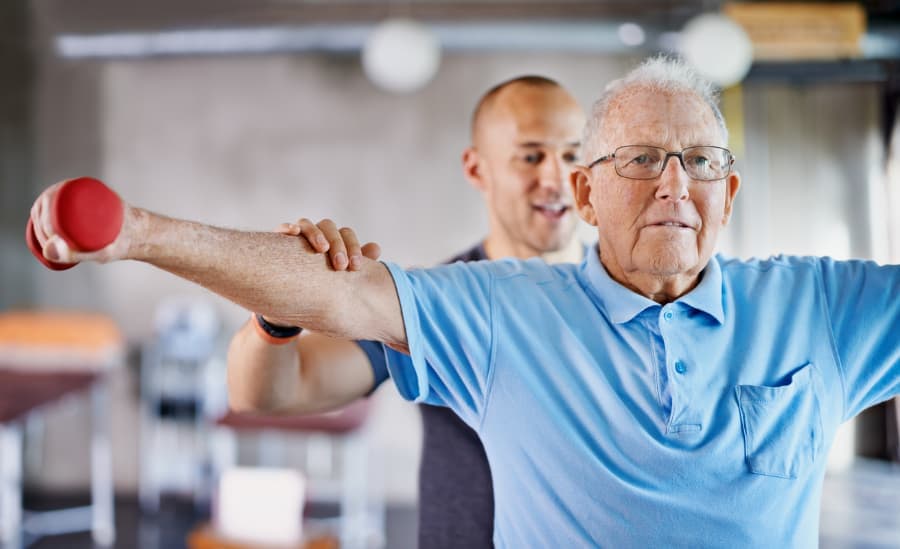A person who has experienced a cardiac event is at an increased risk of having another one. According to the American Heart Association, about one in five people who have had a heart attack will be readmitted to the hospital for a second one within five years. That is because the initial event most likely damaged the heart or blood vessels, affecting the ability to pump blood.
To prevent further complications and return to day-to-day activities, many patients undergo cardiopulmonary and cardiac rehabilitation. Richmond University Medical Center in Staten Island, New York, provides details on the benefits of these rehab programs for patients with a history of cardiovascular disease:
What Is Cardiopulmonary and Cardiac Rehabilitation?
Cardiopulmonary and cardiac rehabilitation are medically supervised programs designed to aid in a patient’s recovery from a cardiac event. The programs involve exercising, emotional support, and education, with the goal of achieving a healthy lifestyle and improving quality of life.
The American Heart Association and American College of Cardiology strongly recommend a rehabilitation program for anyone who has been affected by a cardiac condition, including a heart attack within the last 12 months and chronic heart failure. The reason for this is evidence shows that rehabilitation can reduce the risk of future heart problems and death from heart disease.
The Benefits Beyond the Heart
The most significant benefit of cardiopulmonary and cardiac rehabilitation is improved heart health. However, patients who complete a rehabilitation program following a cardiac event can benefit in several other ways, including:
Improve Muscle Strength
Although the heart is the muscle that matters most after a cardiac event, cardiac and cardiopulmonary rehab helps participants strengthen other parts of their bodies. With a supervised exercise program, patients can safely challenge their limits to improve muscle strength and stamina. This benefit makes performing daily tasks that require physical exertion much easier.
Weight Loss
With a combination of supervised exercise and education for healthy heart living, patients can benefit from a reduction in body fat. This benefit is especially critical as obesity is a common risk factor for many leading health concerns.
Manage Stress
Stress is often referred to as a silent killer because it can have damaging and long-lasting effects on heart health. Stress may have been the cause of a person’s initial cardiac event. Cardiopulmonary and cardiac rehabilitation programs are especially beneficial in these cases as they identify and tackle everyday sources of stress.
Cardiopulmonary Rehab at Richmond University Medical Center
At Richmond University Medical Center, we treat cardiopulmonary rehabilitation as a group effort. Our team of dedicated practitioners specializes in improving the livelihoods of patients recovering from a cardiac condition. Our program involves the following aspects:
Evaluation
Before patients begin the program, they must first undergo a detailed medical and clinical evaluation. This allows our team to determine the patient’s overall health and establish limitations. Based on these results, our rehabilitation team will craft an individualized program.
Exercise
Richmond University Medical Center’s state-of-the-art rehabilitation center features the latest exercise equipment to improve cardiopulmonary health. Patients in the program will participate in regular aerobic exercise and strength training workouts. Every exercise performed by a patient will be based on their individual needs. Exercises begin slowly and gradually increase in intensity as a person progresses through the program.
Education
To achieve desired health and instill good habits into their daily lives, patients receive education and counseling classes on a variety of important health topics. Patients will learn about:
- Smoking cessation
- Medication management
- Nutrition
- Oxygen therapy
- Stress management
Monitor
Throughout every step of our cardiopulmonary rehab program, patients are closely monitored. A healthcare professional observes and documents a patient’s key vital signs using the LSI Cardiopulmonary Rehabilitation Automated Monitoring System. We also monitor changes in symptoms and note any changes in health. Patients will have the opportunity to advance into programs that allow for more frequent and vigorous exercise if our rehabilitation team believes they will benefit.
Begin the Road to Recovery in Staten Island
Patients in Staten Island, who’ve been affected by a cardiovascular condition, can benefit from a strategically designed rehabilitation program at Richmond University Medical Center. We aim to improve the quality of life of our patients by continuously working toward incremental goals.
After completing the prescribed cardiopulmonary rehab program, patients will gain new knowledge and habits to integrate into their daily lives, helping to protect their hearts and lungs from future medical issues. Contact us today for more information regarding our rehabilitation programs, or to schedule an appointment with a cardiopulmonary rehabilitation specialist.




